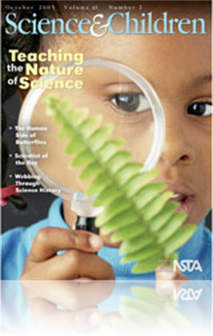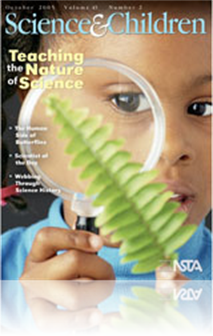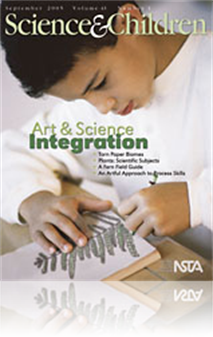All Science and Children resources
Journal Article
There is one important aspect of science that sometimes proves a bit more difficult to teach than other areas: introducing students to the the idea of nature of science. Nature of science speaks to how scientific knowledge is developed--from observa...
Journal Article
The Moon in Children's Literature
The Moon's cycle of phases is one of the most familiar natural phenomena, yet also one of the most misunderstood. Research has found that a significant segment of the population, including students and teachers, mistakenly believes that the Moon's p...
Journal Article
Why should teachers emphasize the nature of science? Not only does it help students to think and solve problems like scientists, but students will learn how knowledge is developed in science. In this section, the editor discusses the nature of scie...
Journal Article
Science 101: How do we know protons, electrons, and quarks really exist?
Scientific explanations often make use of things we cannot see or feel, such as protons, electrons, and quarks. Do these really exist? If so, how do we know they exist?...
Journal Article
Never Too Young for a Concept Map
This article provides ideas on how concept mapping can be adapted to reach early childhood learners when organizing their thoughts in a concrete and/or graphic/visual format, while connecting concepts and linking prior knowledge to new knowledge....
Journal Article
Creating torn paper biomes integrates science and visual art in a performance task that assesses students' knowledge of the characteristics of the biomes of the earth. Students who have difficulty communicating their knowledge in writing can show wha...
Journal Article
A Message from the NSTA President: Developing a World View for Science Education
In this section, NSTA President Michael Padilla shares a story reflecting the affect that immigration has had on almost all school systems across the country. He shares his motivation for choosing Developing a World View for Science Education as the...
Journal Article
The interdisciplinary connection between science and art is easily accomplished in the elementary classroom using plants as focus organisms. Observing, dissecting, growing, drawing, and painting plants can also be used at multiple grade levels to tea...




